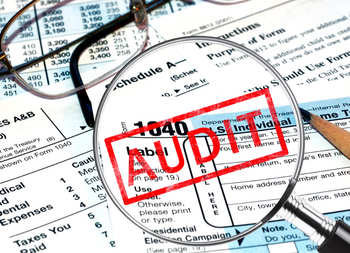No one wants to be audited by the IRS. Sometimes IRS audits are warranted and other times they simply happen to people who really didn’t deserve it. However, there are ways to minimize your risk of an IRS audit. Here are nine to keep in mind as you organize your finances and work with your CPA.
1. File Accurate Returns
Renting out a vacation home can be a lucrative venture, but it comes with a complex set of tax rules that homeowners must navigate to remain compliant and maximize their financial benefits. Learn more about the essential aspects of vacation home rental rules, including clarity and guidance for prospective and current vacation home landlords.
Introduction to Vacation Home Rentals
When traveling for business, understanding what constitutes allowable business deductions can significantly impact the financial health of your business. The Internal Revenue Service provides guidelines that help distinguish between personal and business expenses, ensuring taxpayers do not overstep boundaries while maximizing their deductible expenses.
As a business owner, it’s likely that you have one or more vehicles that you use for business purposes, either full-time or part-time. The IRS offers business deductions for business vehicle use, but it’s important to know the rules, so you can get the most out of the potential deductions.
Charitable giving not only supports those in need but also can provide financial benefits in the form of tax deductions. However, maximizing these benefits while staying compliant with IRS regulations requires careful planning and understanding.
More people are engaging in remote contract work than ever before. Remote contract work offers almost as many advantages to workers and companies as full-time employment. However, this sea change from traditional in-house work to remote contract positions not only alters the way work is done, but also affects both the tax obligations and opportunities for workers.
If you’re like many people, your parents probably taught you that debt is a good thing. Responsibly handling debt makes you a good credit risk, and a lender would be eager to loan to you. However, without judicious use of debt, it can quickly spiral into something much more sinister. Debt has a way of wrecking life plans from a variety of angles.
Student Debt
Annuities aren’t such a modern concept as you might think. Although many people are just now hearing about annuities, they’ve been around as far back as the Roman Empire. Citizens of Rome would make a lump sum payment into what they called an “annua” fund. They would then receive a payment each year until death. In the Middle Ages, annuities were used to raise money to pay for wars.
By now, you may have already given up on some of your New Year’s resolutions. Making huge changes all at once is often too much to sustain. Experts have said that small changes, made consistently over longer periods of time, can be just as transformative—and easier to maintain—than trying to force yourself to change overnight.
All data and information provided on this site is for informational purposes only. CPA Gardens LLC makes no representations as to accuracy, completeness, suitability, or validity of any information and will not be liable for any errors, omissions, or delays in this information. All information is provided on an as-is basis.









